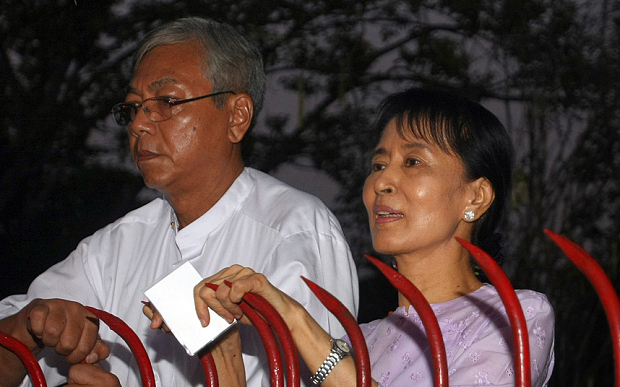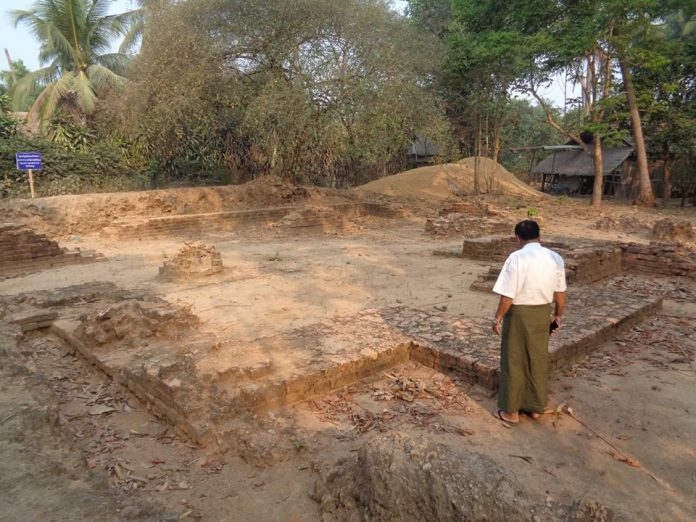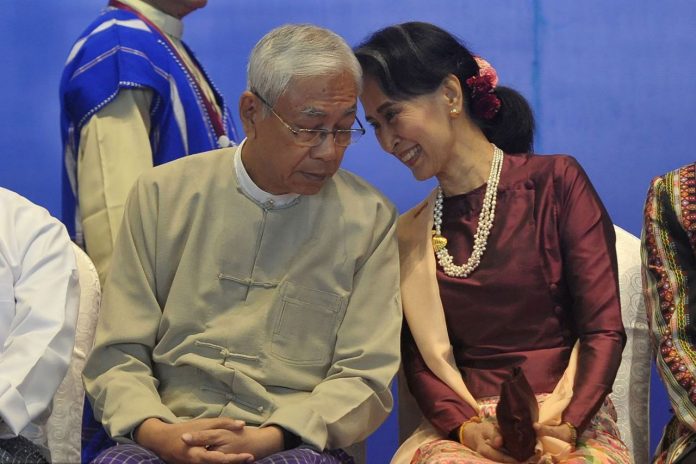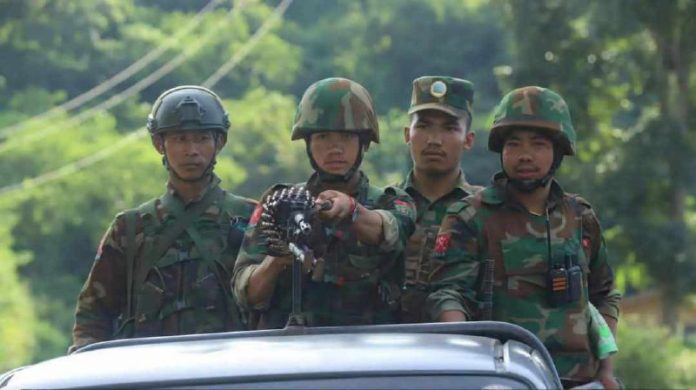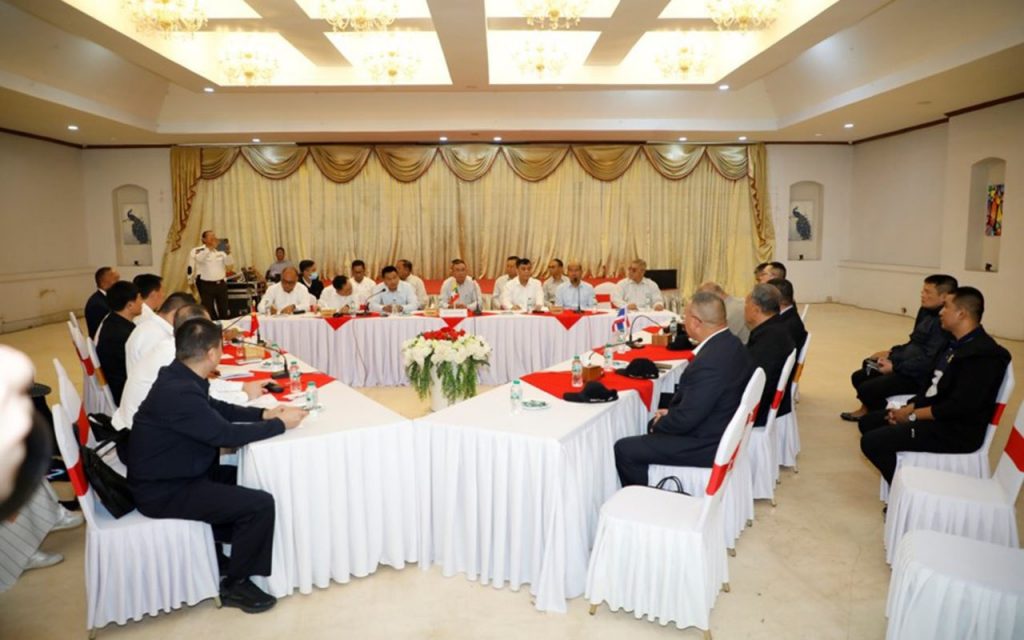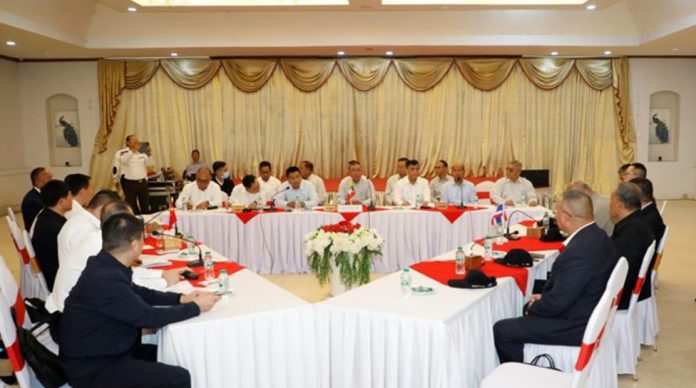Guest contributor
Shafiur Rahman
On Feb. 13, a federal criminal court in Buenos Aires, Argentina, issued arrest warrants for 25 senior Myanmar officials for their role in genocide and crimes against humanity against the Rohingya.
Among those named are junta chief Min Aung Hlaing, his deputy Soe Win, ousted State Counsellor Aung San Suu Kyi, and former President Htin Kyaw. This was a historic step in international justice, forcing accountability for one of the most heinous crimes of the 21st century.
Yet, five days later, the National Unity Government (NUG) of Myanmar issued a response that is a masterclass in evasion, selective memory, and political expediency.
It tries to rewrite history, absolve civilian leaders of responsibility, and pressure the Rohingya into accepting a limited version of justice – all while framing its own political survival as the higher moral imperative.
The NUG, composed largely of former National League for Democracy (NLD) party officials, faced an impossible dilemma. Rejecting Aung San Suu Kyi’s indictment would mean dismissing Rohingya-led justice efforts, while accepting it would risk alienating their base and reshaping Suu Kyi’s legacy.
In the end, they chose to drive a coach and horse through the very idea of Rohingya-led justice efforts. Before the NUG even put out a statement, however, the drama had already begun elsewhere.
The Burmese Rohingya Organisation UK (BROUK) – the very group that initiated this case – deliberately tried to obscure the fact that Aung San Suu Kyi was among those facing an arrest warrant. Their first press release misleadingly stated:
- “Those named in the court’s request include 23 Myanmar military officials.”
This carefully avoided mentioning that the actual number was 25 – including Aung San Suu Kyi and Htin Kyaw. Why on earth would a Rohingya organisation do that?
Surely, they counted it as a major achievement? A press release highlighting her as a target of an Interpol Red Notice would have had far more impact than any other name. Instead, they buried it.
When the confusion became apparent, BROUK quietly updated their press release – not with an announcement or clarification, but with a stealth edit confirming that Suu Kyi and Htin Kyaw were indeed indicted.
This wasn’t an accident. It was a calculated act of narrative control. Even worse, BROUK’s statement tried to shift the blame onto the Argentine prosecutor, claiming:
- “In June 2024, the Argentine prosecutor independently decided to include civilians, such as Aung San Suu Kyi, in his request to the court for arrest warrants.”
This is misleading and is a complete rewriting of history. For years, BROUK campaigned for Aung San Suu Kyi’s prosecution. They:
Filed a case against her in Argentina in 2019.
- Celebrated a 2020 ruling that overturned a decision to exclude her.
- Argued that she, along with the generals, must be held accountable for genocide.
Now, BROUK owes an explanation. Did BROUK face pressure from certain quarters to soften its stance on Suu Kyi?
They should publicly state why they changed their position, who influenced this decision, and why justice is now “not in the best interests” when they spent years saying otherwise.
This case is supposed to be about accountability and NOT about political expediency. With BROUK’s credibility in freefall, the NUG followed with its own attempt at rewriting history.
The NUG statement
Five days after the warrants were issued, the NUG finally responded. It was carefully worded, evasive, and politically calculated. Their core argument is that only the military is responsible:
- “The perpetrators of the mass atrocities committed against the Rohingya… are solely the leaders of the Myanmar military and their subordinate battalions.”
This is demonstrably false. While the Tatmadaw physically carried out the atrocities, Aung San Suu Kyi’s government provided political cover, defended the military at the International Court of Justice (ICJ), denied genocide, and blocked international investigations.
- Who repeatedly downplayed the killings, rapes, and arson? The civilian NLD government.
- Who dismissed evidence of mass graves, torture, and forced displacement? The civilian NLD government.
- Who rejected U.N. fact-finding missions and refused visas to investigators? The civilian NLD government
- Who told the world in 2019 at the ICJ that there was “no genocide”? Aung San Suu Kyi herself.
The idea that civilian leadership had no role is historically and legally untenable.
The NUG also attempts to hide behind the military-drafted 2008 Constitution, arguing that security matters were outside the control of the civilian government.
This is an absurd defense. If Aung San Suu Kyi had no power, then why did she actively defend the military’s actions on the world stage? If she had no say in security matters, why did she oppose independent investigations into military crimes?
Hiding behind the constitution does not change the fact that the civilian leadership endorsed and legitimized the military’s actions instead of resisting them.
The statement also calls for Aung San Suu Kyi and Htin Kyaw to be removed from the case, calling their inclusion “a misguided and erroneous legal accusation.” This is pure self-interest.
The Argentine court issued arrest warrants based on an investigation under universal jurisdiction. The judges did not act randomly or on a whim.
They evaluated evidence. Yet the NUG isn’t engaging with that evidence at all. Instead, they are simply declaring the case “erroneous” without addressing any of the facts. That’s not a legal argument. That is pure and simple damage control.
The most cynical part of the statement is the claim that prosecuting Aung San Suu Kyi and Htin Kyaw will “create misunderstandings between the Rohingya and other ethnic groups.”
This is an insult to justice. It suggests that Rohingya should accept a politically convenient version of accountability – one that does not touch Myanmar’s civilian leaders – lest they upset the delicate balance of ethnic politics.
Why should Myanmar’s “national unity” come at the expense of Rohingya justice?
Aung San Suu Kyi and Htin Kyaw held the highest civilian offices in Myanmar. They could have demanded international investigations, spoken out against anti-Rohingya violence and at the very least, NOT defended the military at the ICJ.
They did none of those things. And now, the NUG wants to erase their role in history.
One of the weakest defenses of Aung San Suu Kyi and Htin Kyaw is their role in the Kofi Annan Commission, which the NUG cites as proof that they worked toward a “long-term solution” for the Rohingya.
This is nonsense. The commission was a toothless advisory body. It was a public relations exercise that Suu Kyi used to deflect international pressure rather than confront the military’s crimes.
It had no investigative or prosecutorial power, and its recommendations were ignored outright. Waving it around as a defense is insulting. It was a smokescreen and one that did nothing to stop what the U.N. later called a “textbook example of ethnic cleansing.”
Finally, the NUG warns that prosecuting civilian leaders will “undermine national unity” and obstruct the “Spring Revolution.” This is a false dilemma.
Holding Aung San Suu Kyi accountable does not mean the military gets off the hook. Pursuing justice for the Rohingya does not mean abandoning the fight against dictatorship. Democracy built on impunity is not real democracy.
Rohingya leaders: Is silence an option?
The complete silence of Rohingya spokespersons on this high-stakes debate is cowardly, short-sighted, and self-defeating. For years, Rohingya have been pushed to the margins of Myanmar’s politics. Now, when Myanmar’s opposition is rejecting justice for the Rohingya, they say nothing?
Make no mistake: the NUG is watching. If Rohingya leaders say nothing now, they will learn a crucial lesson – Rohingya leaders can be ignored.
Rohingya leaders will accept whatever version of justice the NUG offers them. Rohingya leaders are too weak or too afraid to stand up for themselves.
Will Rohingya justice be sacrificed for political convenience?
The NUG’s statement is a carefully crafted piece of political damage control. It selectively assigns blame, rewrites history, and pressures Rohingya to settle for an incomplete version of justice.
The truth is simple: Aung San Suu Kyi and Htin Kyaw are indicted for their role in the Rohingya genocide. The NUG says that’s “erroneous” but offers no counter-evidence, only political excuses.
Meanwhile, BROUK, the Rohingya organisation behind the Argentine efforts, after years of campaigning for Aung San Suu Kyi’s prosecution, suddenly decided that now is not the right time. They misled the public, quietly changed their press release, and hoped no one would notice.
Justice must apply to all perpetrators and not just the convenient ones. If the NUG truly believes in human rights, it cannot make exceptions when those values are politically inconvenient.
Rohingya must now decide: Will they demand full justice, or will they accept the version dictated to them by Myanmar’s political elite?
Shafiur Rahman is a journalist and documentary maker. He writes the Rohingya Refugee News newsletter.
DVB publishes a diversity of opinions that does not reflect DVB editorial policy. We’d like to hear what you think about this or any of our stories: [email protected]


